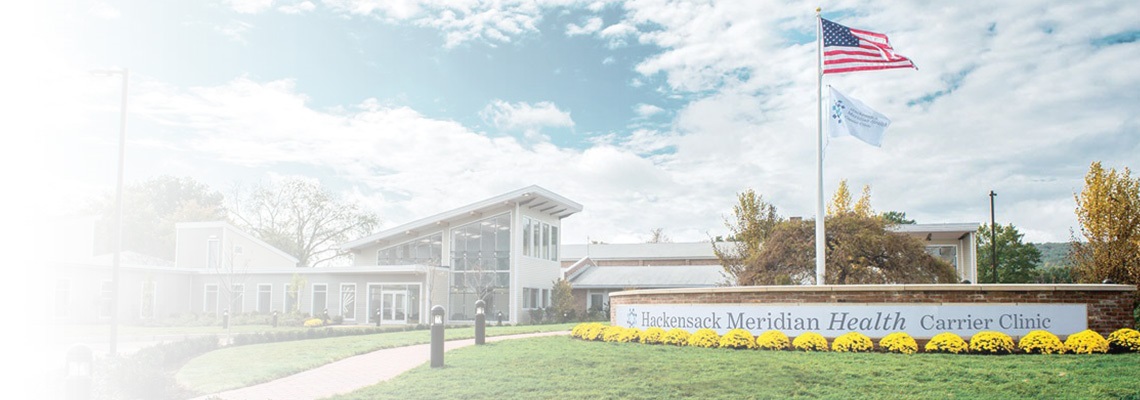Neuromodulation Services (ECT) at Hackensack Meridian Health
Advanced ECT Treatment in New Jersey That Restores Hope
For more than fifty years, Carrier Clinic® has been a trusted leader in providing safe and effective electroconvulsive therapy (ECT) for individuals with treatment-resistant mental and behavioral health conditions. Located in Somerset County, New Jersey, Carrier Clinic is recognized as the largest and most experienced ECT provider on the East Coast.
Our hospital-based programs in Belle Mead, Neptune, and Perth Amboy deliver both inpatient and outpatient neuromodulation services in medically supervised, supportive environments. Our expert teams combine decades of Carrier Clinic best practices with advanced technology to ensure safe, compassionate care tailored to each person’s needs.
Caroline’s Story: How ECT Saved my Life
For fifteen years, Caroline lived with a mental health condition that did not respond to medications. Feelings of hopelessness and suicidal thoughts became part of her daily life until her care team suggested ECT. After starting treatment at Carrier Clinic, Caroline experienced life-changing improvement and rediscovered hope for her future.
When Might ECT Be Appropriate?
ECT may be recommended when mental or behavioral health conditions have not responded to medications or other therapies. It can be an option for conditions such as treatment-resistant depression, psychosis, bipolar disorder, schizophrenia, or other psychiatric disorders.
ECT can also improve quality of life for individuals with severe forms of autism, catatonia, or other chemical imbalances. If you or someone you know has a treatment-resistant mental health condition, talk to your physician or mental health professional to see if ECT may be right for you.
Where ECT Services Are Offered
ECT is available at Hackensack Meridian Health’s hospital-based Carrier Clinic locations in Belle Mead, Neptune, and Perth Amboy, New Jersey.
530 New Brunswick Avenue
Perth Amboy, NJ 08801
732-324-5339
Electroconvulsive Therapy (ECT) Frequently Asked Questions
No. ECT is performed while patients are under general anesthesia, so no pain is felt during the procedure. After treatment, some may experience temporary side effects such as headache, muscle aches, or mild confusion, which typically resolve within a few hours.
There is no evidence that ECT causes brain damage. Some patients experience temporary confusion or mild memory problems shortly before, during, or after treatment, but these effects are short-lived. There is no permanent impact on memory or cognition.
ECT is a medical treatment in which a carefully controlled electrical charge is applied to the front part of the brain to help relieve symptoms of certain psychiatric illnesses. Decades of research show that ECT provides safe, effective, and rapid relief for 80%–95% of patients who meet clinical criteria.
ECT is often used when medications or other therapies have not been successful. It can also be considered as an initial treatment for severe psychotic depression, cases involving malnutrition, or when a patient is pregnant and certain medications cannot be used.
ECT is most commonly prescribed for severe depression when symptoms include changes in:
- Appetite or weight
- Disrupted sleep
- Loss of interest in daily activities
- Feelings of guilt or hopelessness
- Low energy
- Poor concentration
- Suicidal thoughts
The number of treatments varies by individual need and response. Most patients receive six to twelve sessions, up to three times per week. Maintenance therapy may also be recommended to prevent future depressive episodes.







